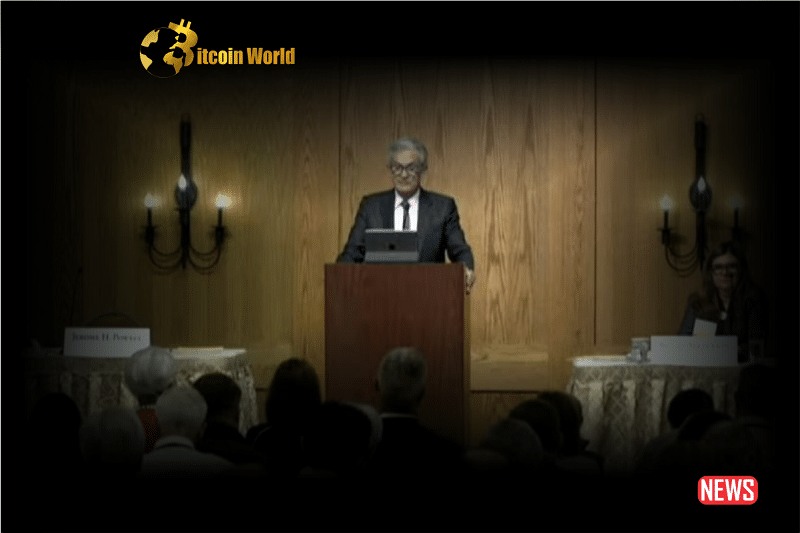The world of stablecoins is heating up, and it’s not just the technology causing friction. A major clash is brewing in Washington D.C., with leading Republican members of the House Financial Services Committee directly challenging the Federal Reserve’s recent moves. Think of it as a high-stakes chess match where the future of digital currency regulation hangs in the balance.
Why the Anger? The Fed’s Actions Spark GOP Ire
At the heart of the matter are the Federal Reserve’s newly issued supervision and regulation letters, specifically SR 23-7 and SR 23-8. These documents, intended to provide guidance on digital asset activities, have instead ignited a firestorm among key Republicans. Representatives Patrick McHenry, French Hill, and Bill Huizenga didn’t mince words in their letter to Fed Chairman Jerome Powell, accusing the central bank of potentially stifling innovation in the digital asset space. Their core argument? The Fed’s actions are undercutting Congress’s own efforts to establish clear rules for payment stablecoins.
What Exactly Are These Controversial Letters?
Let’s break down the documents causing all the fuss:
- SR 23-7: This letter establishes the Fed’s Novel Activities Supervision Program. Republicans argue this program creates unnecessary hurdles for banks wanting to engage with cryptocurrency assets.
- SR 23-8: This letter focuses on supervising institutions involved in digital asset activities. The GOP fears it will discourage banks from participating in the stablecoin ecosystem altogether.
The GOP lawmakers believe that while these letters are presented as guidelines, they effectively act as restrictions, potentially preventing banks under Fed supervision from issuing payment stablecoins or even participating in the broader stablecoin market.
Is This a Case of Regulatory Overreach?
The Republican stance is clear: Congress is actively working towards a clear and consistent regulatory framework for stablecoins. They point to the bipartisan support for the Clarity for Payment Stablecoins Act within the House Financial Services Committee as evidence of their commitment. Their concern is that the Fed’s actions are preemptive and could create confusion and uncertainty, ultimately hindering the development of a robust and safe stablecoin market.
The Procedural Puzzle: Did the Fed Follow the Rules?
Beyond the substance of the regulations, the GOP also raises a significant procedural concern. They argue that the issuance of SR 23-7 and SR 23-8 should have followed the Administrative Procedure Act, which mandates a notice and comment period. In simpler terms, they believe the Fed should have consulted with market participants and the public before issuing such impactful guidance. Issuing these letters without this crucial step, according to the lawmakers, is simply unacceptable.
Why Does This Matter for the Future of Stablecoins?
This isn’t just a political squabble; it has real-world implications for the future of stablecoins and the broader digital asset landscape. Here’s why you should pay attention:
- Impact on Innovation: Overly restrictive regulations could stifle innovation and push development of these technologies overseas.
- Financial Institution Involvement: Banks play a crucial role in the financial system. If they are discouraged from participating in the stablecoin market, it could limit adoption and growth.
- Consumer Protection: While regulation is necessary to protect consumers, it needs to be balanced to avoid hindering innovation.
- Market Confidence: Clarity and consistency in regulation are essential for building trust and confidence in the stablecoin market.
What’s Next in This Regulatory Tug-of-War?
The ball is now firmly in the Federal Reserve’s court. How they respond to these concerns from influential Republican lawmakers will be critical. Will they reconsider their approach? Will they engage in further dialogue with Congress? The answers to these questions will significantly shape the future trajectory of stablecoin regulation in the United States.
Key Takeaways:
- Leading Republican House members are strongly criticizing the Federal Reserve’s recent stablecoin guidance.
- They believe the Fed’s actions undermine Congressional efforts to create a clear regulatory framework.
- The controversial SR 23-7 and SR 23-8 letters are seen as potential barriers for banks entering the stablecoin market.
- Republicans are also raising procedural concerns about the lack of a notice and comment period.
- The outcome of this conflict will have a significant impact on the future of stablecoin regulation and the broader digital asset ecosystem.
The Bottom Line: A Regulatory Landscape in Flux
The clash between the GOP and the Federal Reserve underscores the complex and often contentious nature of regulating new technologies like stablecoins. It highlights the delicate balance between fostering innovation and ensuring consumer protection. As this political battleground evolves, industry stakeholders and observers alike will be watching closely, understanding that the decisions made now will have lasting consequences for the future of digital finance.
Disclaimer: The information provided is not trading advice, Bitcoinworld.co.in holds no liability for any investments made based on the information provided on this page. We strongly recommend independent research and/or consultation with a qualified professional before making any investment decisions.





